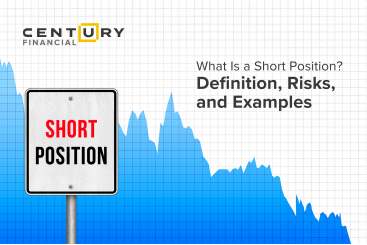

Japan's stock market plummeted 12% on 5 August, 2024, its worst day in 37 years. The TOPIX wiped out its gains for the year, the sharpest sell-off since "Black Monday" in October 1987. The Nikkei Stock Average Volatility Index rocketed to the highest level ever, based on data complied by Bloomberg back in 2001.
.png)
Source: Tradingview
Why does the rise in the interest rate by BOJ matter so much?
The Bank of Japan (BOJ) raising interest rates has a significant impact on the global economy, with both positive and negative consequences:
POSITIVE
Increased Investment Opportunities
Higher interest rates in Japan may attract foreign investors seeking higher returns. This influx of capital can benefit the Japanese economy
NEGATIVE
Carry Trade Unwinding and Market Volatility:
A rise in Japanese interest rates can trigger a rapid unwinding of carry trades, where investors borrow yen at low rates to invest in higher-yielding assets elsewhere. This can lead to significant volatility in financial markets worldwide.
Stronger Yen and Trade Imbalances:
A stronger yen can make Japanese exports more expensive and less competitive, potentially harming countries that rely on Japanese imports.
Impact on different asset classes

Commodities:
The impact on commodities can vary depending on the specific commodity. A stronger yen, resulting from higher interest rates, can make imported commodities cheaper for Japan, potentially increasing demand. However, a global economic slowdown triggered by tighter monetary policy could reduce overall commodity demand and lower prices.
Currencies:
Impact on Yen:The impact on commodities can vary depending on the specific commodity. A stronger yen, resulting from higher interest rates, can make imported commodities cheaper for Japan, potentially increasing demand. However, a global economic slowdown triggered by tighter monetary policy could reduce overall commodity demand and lower prices.

Impact on Other Currencies:
The yen's appreciation can put downward pressure on other currencies, particularly those involved in carry trades with the yen (e.g., borrowing in yen to invest in higher-yielding currencies).

Stocks:
Rising rates have a complex impact on Japanese stocks. Rising rates can negatively affect stock valuations as equities will be valued using higher discount rates. However, if the rate hike successfully addresses inflation concerns and supports a more robust economy, it could eventually boost investor confidence and lead to stock market gains.
Impact on currency markets
Since January, the yen strengthened to its highest level against the dollar of 161.95 and last traded at 145.87 (8th August, 2024)
The Japanese yen surged to seven-month highs against the dollar on 5th August, 2024. Many traders aggressively unwound carry trades after a slew of economic data last week raised the prospect of a U.S. economic downturn and more significant rate cuts from the Federal Reserve in 2024.
Intervention Reports and Market Jitters
.png)
Why did the YEN rise against the USD?
Increased Demand for Yen:
Higher interest rates in Japan make Japanese assets, such as bonds and deposits, more attractive to foreign investors seeking higher returns. This increased demand for yen-denominated assets pushes up the value of the yen.
Reduced Supply of Yen:
The BOJ's tight monetary policy of higher interest rates and reduced bond purchases will decrease the money supply in the economy, reducing the supply of Yen.
Expectations of Future Appreciation:
If investors anticipate further interest rate hikes by the BOJ, they may buy yen in advance, hoping to profit from its expected appreciation. This can create a self-reinforcing cycle of rising demand and a stronger yen. If more favourable economic data is released around avoiding a US recession, investors may want to buy the Yen in advance on anticipation of further rate hikes.
Capital Flows:
Higher interest rates can attract capital inflows into Japan as investors seek to take advantage of the higher yields. These capital inflows increase demand for the yen and contribute to its appreciation.
Why did BOJ raise rates?
The Bank of Japan raised its key interest rate to curb the yen’s slide against the U.S. dollar. The yen’s recent drop to 160-yen levels to the dollar hurts an economy that imports almost all its oil and other items, like food, from the US.
The Reasons:
Addressing Inflation Concerns:
In June 2024, the core consumer price index (CPI), excluding volatile food and energy prices, increased by 3.3% year-on-year. This was well above the BOJ's 2% target. The central bank was concerned that the recent rise in inflation could become entrenched. Raising interest rates was seen to cool down the economy.
.png)
Wage Growth:
Wage growth in Japan has been accelerating, adding to inflationary pressures. In the second quarter of 2024, average monthly cash earnings increased by 3.6% year-on-year, the fastest in decades.
Curbing Yen Depreciation:
The BOJ aimed to stabilise the yen's exchange rate by raising interest rates, making Japanese assets more attractive to foreign investors.
What is going to be ahead?
BOJ said it would reduce its monthly bond buying pace to around ¥3 trillion ($19.9 billion) by the first quarter of 2026, embarking on the path to quantitative tightening after a prolonged period of asset purchases left it holding more than half of the nation’s outstanding bonds. If markets expect a US recession shortly, there is a high chance that the BOJ will hold off raising interest rates.
If the Bank of Japan (BOJ) reduces its holdings of Japanese Government Bonds (JGBs), it could impact your investments in the following ways:
POTENTIAL POSITIVE IMPACTS:
Higher Interest Rates on Deposits:
As bond yields rise, banks may also increase interest rates on deposits to attract customers.
Potential for Long-Term Economic Growth:
The BOJ's move towards reducing its JGB holdings can be seen as a step towards normalising monetary policy. This could lead to more sustainable economic growth in the long run, although it might involve short-term adjustments and volatility.
POTENTIAL NEGATIVE IMPACTS:
Falling Bond Prices:
When the BOJ buys fewer JGBs, the demand for these bonds decreases, leading to a fall in their prices and a corresponding rise in their yields (interest rates). If you hold JGBs directly or through bond funds, their value may decline as yields rise.
BOJ's Japanese government bond holdings (In trillions of yen)
.png)
The action you should be taking
Such time creates both fears and presents opportunities to investors as well. Investors can capitalize on such times and diversify their portfolio by either investing in different markets or investing in equities present at a discount (much below their 52-week high and at a reasonable valuation)
We provide you with this opportunity to invest in global markets. Strategies like hedges and Pair trades will help you stay updated on multiple happenings and potential investment avenues to empower you to make informed decisions. Visit ‘Investment Insight’ to learn about such strategies.
This marketing and educational content has been created by Century Financial Consultancy LLC (“Century”) for general information only. It does not constitute investment, legal, tax, or other professional advice, nor does it constitute a recommendation, offer, or solicitation to buy or sell any financial instrument. The material does not take into account your investment objectives, financial situation, or particular needs.
The opinions expressed by the hosts, speakers, or guests are their own and may change without notice. Information is based on sources we consider to be reliable; however, Century does not guarantee its accuracy, completeness, or timeliness and accepts no liability for any loss arising from reliance on this content.
Trading and investing involve significant risk, and losses may exceed initial deposits. Past performance is not indicative of future results. CFDs and other leveraged products are complex instruments that may not be suitable for all investors. Please ensure you understand how these products work, the associated risks, and seek independent professional advice if necessary.
Century is licensed and regulated by the UAE Capital Market Authority (CMA) under License Nos. 20200000028 and 301044.
Please refer to the full risk disclosure mentioned on our website.




__1439480927.jpg)




.png)
.png)
.png)
.png)


